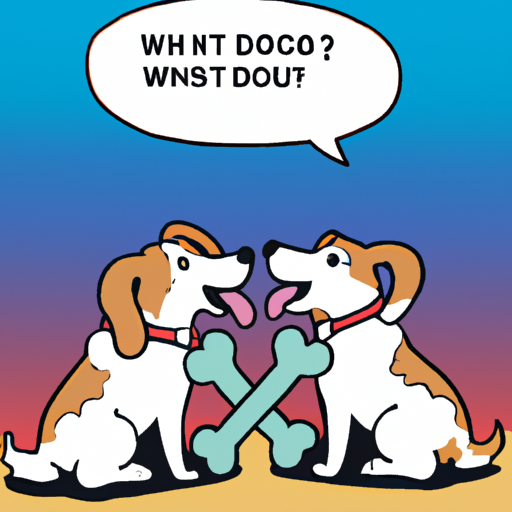Introduction
You’ve probably noticed that your dog tends to lick inside the mouths of other dogs, and you’ve likely wondered why. Is it a show of affection, a sign of submission, a way to gather information, or simply a quirky canine behavior? Let’s dive into this intriguing canine behavior and try to understand what drives it.
H2: Submissive Behavior
One of the primary reasons dogs lick inside other dogs’ mouths is because it’s a form of submissive behavior. This behavior originates from when dogs were wild and lived in packs. The subordinate dogs would lick the mouths of the more dominant dogs as a way of acknowledging their lower status.
Here’s a quick look at the hierarchy:
| Rank | Behavior |
|---|---|
| Dominant | Receives mouth licking |
| Subordinate | Initiates mouth licking |
H2: Communication
Dogs use licking as a form of communication. You might have observed your dog licking you when they want something, like food or attention. Similarly, when a dog licks inside another dog’s mouth, it could be their way of asking for something. For example, puppies often lick their mothers’ mouths to get them to regurgitate food.
- Food request
- Attention seeking
- Play initiation
H2: Affection and Bonding
Just as humans show affection through hugs and kisses, dogs show their affection by licking. When your dog licks another dog’s mouth, it could be a sign of affection. This behavior is also one way dogs bond with each other.
- Affection
- Bonding
H2: Exploring Their World
Dogs use their sense of taste and smell to explore their world, and licking is a big part of that. When a dog licks inside another dog’s mouth, they’re gathering information about what the other dog has been eating, where they’ve been, and more.
- Information gathering
- Environment exploration
Frequently Asked Questions (FAQ)
Q: Is it harmful for dogs to lick each other’s mouths?
A: Not usually, but it’s always good to watch out for signs of aggressive behavior.
Q: Should I stop my dog from licking other dogs’ mouths?
A: Unless it’s causing problems, there’s no need to stop this behavior.
Q: What if my dog doesn’t like being licked?
A: It’s important to respect each dog’s boundaries. If your dog isn’t comfortable, it’s best to intervene.
Q: Does a dog licking my mouth mean the same thing?
A: It can have similar meanings, like showing affection or seeking attention, but it’s best to discourage this behavior for hygiene reasons.
Understanding why dogs lick inside other dogs’ mouths can give us valuable insights into how they communicate and interact with their world. As caregivers, it’s our responsibility to understand and respect these behaviors, helping our furry friends live their happiest, healthiest lives.



